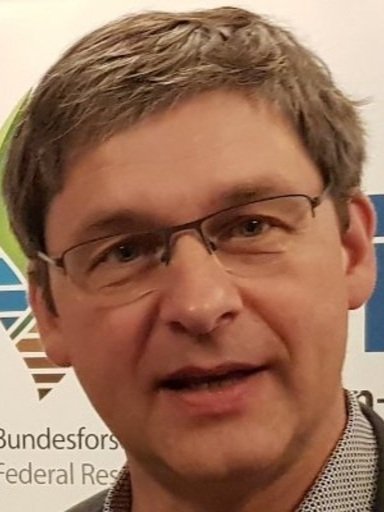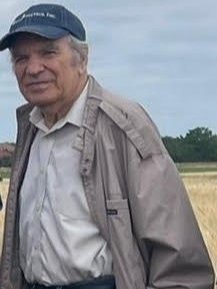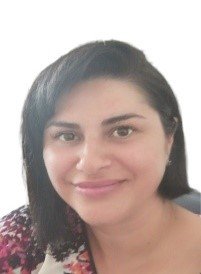Europe
member
countries
8
11
Jean-Pierre cohan
Country: France
Institution: Arvalis Institut du végétale
Jean-Pierre COHAN is the Director of Research & Development of ARVALIS, which is the farmers funded French applied research institute working on several crops, including wheat. ARVALIS addresses many topics contributing to the multiperformance of farms and cropping systems, including adaptation to climate change and integrated pest management. Its research programs are positioned all along the crops cycle (from seeds to post-harvest technologies) and at multiple scales (from genes to territories). Before his current position, Jean-Pierre COHAN was the head of ARVALIS department “Adaptation of crops to agroclimatic contexts, Genetics and Phenotyping”. His scientific background is in Agronomy and Nutrient Use Efficiency (including the interaction between genetics and NUE).
Bernd Hackauf
Country: Germany
Institution: Julius Kühn Institute
The overall objective of TERTIUS is to develop wheat prototypes with optimized root system, improved water-use efficiency and good baking quality, which are characterized by stable and high grain yield under drought stress.
Projects:
Genome-based strategies to use the tertiary gene-pool for breeding of climate smart wheat (TERTIUS)
Agata Gadaleta
Country: Italy
Institution: University of Bari Aldo Moro
The main scope of the project CerealMed is to fill gaps for implementing a biodiversity-based wheat cropping system in the Mediterranean area. Cerealmed addresses the challenge biodiversity from many different points of view, ranging from crop genetic diversity to alternative end-use of crops, from multi-crop farming systems to soil microbioma diversity, to achieve relevant ecosystem targets. Agata Gadaleta coordinates the CerealMed project. She works at the Department of Agricultural and Environmental Sciences at the University of Bari.
Projects:
Nicolae Saulescu
Country: Romania
Institution: National Agricultural Research & Development Institute (NARDI)– FUNDULEA
Climate changes have manifested in the last years in Romania mainly by a considerbable incease in temperatures and by increased fequenchy of drought periods. Both have had an important impact on wheat yields. The project aims at accelerating genetic progress for heat and drought resistance in the winter wheat breeding program, by:
Introgression of favorable genes of cultivars from countries more affected by these abiotic stresses
Use of MAS and seedling tests
Projects:
Improving adaptability of wheat and barley crops to climate changes takig place in Romania
Gabriela Serban
Country: Romania
Institution: National Agricultural Research & Development Institute (NARDI)– FUNDULEA
The AGENT (Activated Genebank network) project, a project funded by the programme HOROZON 2020, aims to unlock the full potential of the biological material stored in gene banks around the globe by introducing a new international standard and an open digital infrastructure for the management of plant genetic resources. Targeting a better integration of existing genetic material into modern breeding programs, the project will make an important contribution to global food security and the adaption of staple food crops to changing climatic conditions worldwide.
Projects:
Ruben Vincente
Country: Spain
Institution: Institute of Natural Resources and Agrobiology of Salamanca (IRNASA), Spanish National Research Council (CSIC)
The Photosynthesis Group at IRNASA-CSIC deals with studies on the physiology, biochemistry, molecular biology and agronomy of cereal crops, especially wheat. The main objective is the characterisation of the adaptative response to adverse environments (e.g. high temperatures, drought, elevated CO2, nutrient deficiencies, their combinations, etc.), investigating the photosynthetic assimilation and mechanisms of regulation of primary carbon and nitrogen metabolism and cellular antioxidant status. Ruben has key expertise in photosynthesis, crop improvement, abiotic stress, phenotyping and source-sink dynamics. In addition of performing research at IRNASA-CSIC, Ruben is also the head of the Plant Ecophyiology and Metabolism Group at ITQB NOVA in Portugal.
RosA Morcuende
Country: Spain
Institution: Institute of Natural Resources and Agrobiology of Salamanca (IRNASA), Spanish National Research Council (CSIC)
The Photosynthesis Group at IRNASA-CSIC deals with studies on the physiology, biochemistry, molecular biology and agronomy of cereal crops, especially wheat. The main objective is the characterisation of the adaptative response to adverse environments (e.g. high temperatures, drought, elevated CO2, nutrient deficiencies, their combinations, etc.), investigating the photosynthetic assimilation and mechanisms of regulation of primary carbon and nitrogen metabolism and cellular antioxidant status. Rosa has key expertise in carbon and nitrogen metabolism, plant physiology and nutrition. In addition, Rosa is coordinating a spanish network of researchers called WheatNet, which aims to boost sceintific and technical research on wheat in Spain
Juan Arellano
Country: Spain
Institution: Institute of Natural Resources and Agrobiology of Salamanca (IRNASA), Spanish National Research Council (CSIC)
The Photosynthesis Group at IRNASA-CSIC deals with studies on the physiology, biochemistry, molecular biology and agronomy of cereal crops, especially wheat. The main objective is the characterisation of the adaptative response to adverse environments (e.g. high temperatures, drought, elevated CO2, nutrient deficiencies, their combinations, etc.), investigating the photosynthetic assimilation and mechanisms of regulation of primary carbon and nitrogen metabolism and cellular antioxidant status. Juan has key expertise in plant biochemistry, reactive oxygen species, antioxidant status, and environmental stress. Juan is the coordinator of the Photosynthesis Group at IRNASA-CSIC
Eva Johansson
Country: Sweden
Institution: Swedish University for Agricultural Sciences
Eva Johansson is working as Professor at the Swedish University for Agricultural Sciences (SLU) as the head of the department of plant breeding. She and her group are searching for genes responsible for drought tolerance, climate change tolerance and stability across environments in alien and acient wheat lines.
Andreas Hund
Country: Switzerland
Institution: ETH Zurich
Andreas Hund leads the team of physiological breeding at ETH Zurich. Together with research partners and breeders the team develops new phenotyping methods to enhance the genetic gain for climate-change adaptation. It aims to test the hypothesis that short-term responses to weather pattern may be used to identify genotypes better adapted to heat and drought during critical stages for yield formation. To achieve this, the group uses the unique Field Phenotyping Platform (FIP), drones and mobile devices. The data derived from continuous phenotyping is processed with advanced feature extraction methods and modelling tools to derive the relevant traits.
Projects:
Simon Griffith
Countries: United Kingdom
Institution: John Innes Centre
DSW is a co-ordinated and collaborative initiative, funded by BBSRC, to address critical challenges in achieving genetic progress for wheat. This includes: nutritional value, yield, and sustainable production in order to safeguard the future of this vital crop. It builds upon work carried out in DFW and WISP, which were focused on germplasm resources from genebanks to gene discovery. Through the work carried out in these projects, much has been achieved in this area meaning that in DSW we focus on using these resources to deliver new understanding of trait biology and delivery of traits for public good. DSW is investigating a variety of traits relevant to AHEAD, including those involved in ambient temperature sensitivity, root and shoot development, crop height, inflorescence and grain development, root response to nutrient availability, use of nitrogen fertiliser and other nutrients, resistance to a range of pathogens and pests and finally the quantity and quality of starch, dietary fibre and minerals in grain. Resources and information generated within the DSW programme are fully accessible and adhere to FAIR data principles. DSW works extremely in close partnership with wheat breeders to run the Breeders Toolkit pre breeding platform. We look forward to collaborating with members of AHEAD!
Projects:












